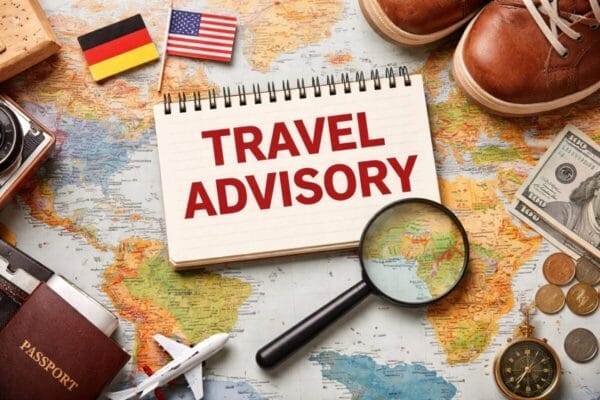China has become the center of global attention with the introduction of an AI-driven business travel platform that promises to reshape corporate journeys worldwide. Far from being a simple technological upgrade, this development has been hailed by industry experts as a structural transformation in the global tourism sector. By combining cost efficiency with personalized travel experiences, the platform creates a balance that benefits both employers and employees—a balance that has long been difficult to achieve.
Driving a New Era in Business Travel
Observers describe this launch as a turning point, establishing new benchmarks in how organizations manage travel. At its core, the system focuses on two key pillars: intelligent employee itineraries and advanced analytics for management. Together, these components streamline compliance, reduce inefficiencies, and deliver seamless journeys.
For employees, this means a smoother travel experience with less stress in planning. For organizations, it translates into reduced expenses, greater control, and actionable insights. This blend of technology and human-centered design has been presented as a model for the future of corporate tourism worldwide.
Large-Scale Adoption in China
Industry reports confirm that the platform has already been adopted by millions of employees across thousands of enterprises in China. This rapid uptake highlights its scalability and practical utility. Unlike earlier travel management systems that often suffered from inefficiencies and fragmented processes, this solution has been built to integrate seamlessly across industries.
Its focus on digital transformation aligns with a global trend in tourism where reliance on real-time analytics and predictive technology is replacing traditional, manual systems. Experts believe that other regions, eager to modernize their tourism sectors, will soon follow this model to remain competitive in attracting corporate travelers.
Tackling Corporate Travel Challenges
What sets this platform apart is its clear orientation toward corporate needs. While most consumer travel platforms focus on leisure, this system is engineered with financial discipline, compliance, and employee well-being in mind. Intelligent AI agents with both short-term and long-term memory capabilities adapt to user behavior, ensuring smarter results with every trip planned.
Through the Model Context Protocol (MCP), the platform connects to live databases of flights, hotels, restaurants, and transport providers. This ensures that every itinerary is not only accurate but also aligned with company rules. As a result, businesses can control costs effectively without creating frustration among their workforce.
Empowering Managers with Intelligent Analytics
Another major innovation lies in its corporate management module. With the help of AI-powered analytics, companies can now track compliance, monitor expenses, and identify inefficiencies in real time. This function also creates enterprise-specific datasets that reflect spending habits, policy adherence, and employee preferences.
By integrating predictive analytics, managers gain the ability to anticipate issues before they become costly. For global corporations dealing with complex logistics, this foresight can be transformative. Specialists note that this proactive planning has the potential to save millions while also ensuring smoother operations across borders.
Enhancing Employee Travel Experience
For employees, the system simplifies a process that has traditionally been time-consuming and stressful. By requiring only three key inputs—purpose, time, and destination—the platform can generate complete itineraries, including flights, hotels, and ground transportation.
Employees benefit from personalized recommendations that remain within corporate policy, while real-time reminders and compliance checks prevent overspending. The system even uncovers hidden savings, such as suggesting earlier flights to avoid overnight expenses or identifying hotels that meet both company guidelines and employee comfort needs.
This approach reassures staff that their comfort and convenience are prioritized, while organizations maintain the oversight necessary for financial discipline.
Global Implications for Tourism
Industry analysts believe the ripple effects of this innovation will extend far beyond China. As multinational corporations adopt similar systems, destinations worldwide will need to adapt their tourism infrastructure. Smarter airports, digital hotel technologies, and advanced transport systems are likely to become standard expectations for international travelers.
Experts forecast several long-term shifts:
- Widespread adoption of AI-powered travel management systems across corporations.
- Development of culturally adaptive features to serve diverse global workforces.
- A stronger balance between budget control and employee satisfaction.
These trends could accelerate the modernization of global tourism, making it more efficient, adaptive, and employee-friendly.
A Landmark in Global Corporate Travel
The unveiling of China’s AI business travel platform has been described as a landmark event that redefines how organizations perceive employee journeys. Corporate travel is no longer treated as a mere logistical necessity but as an opportunity to optimize efficiency, compliance, and satisfaction simultaneously.
By reframing business travel as a strategic tool, the platform demonstrates that technology and human needs can complement one another rather than compete. The integration of AI-driven agents, predictive analytics, and traveler-focused design represents a new benchmark in the global tourism sector.
Conclusion: A Defining Shift in Tourism
The global tourism industry is at the threshold of a new era. With China leading the charge, AI-powered corporate travel is set to become the standard rather than the exception. Businesses seeking modernization will inevitably turn to models that prioritize both cost efficiency and traveler comfort.
As this shift unfolds, corporate tourism will evolve into a more intelligent, adaptive, and globally connected system. What began as an innovation in China is now poised to transform how organizations around the world manage their journeys—setting the stage for a smarter, more sustainable future in business travel.
For more travel news like this, keep reading Global Travel Wire


















